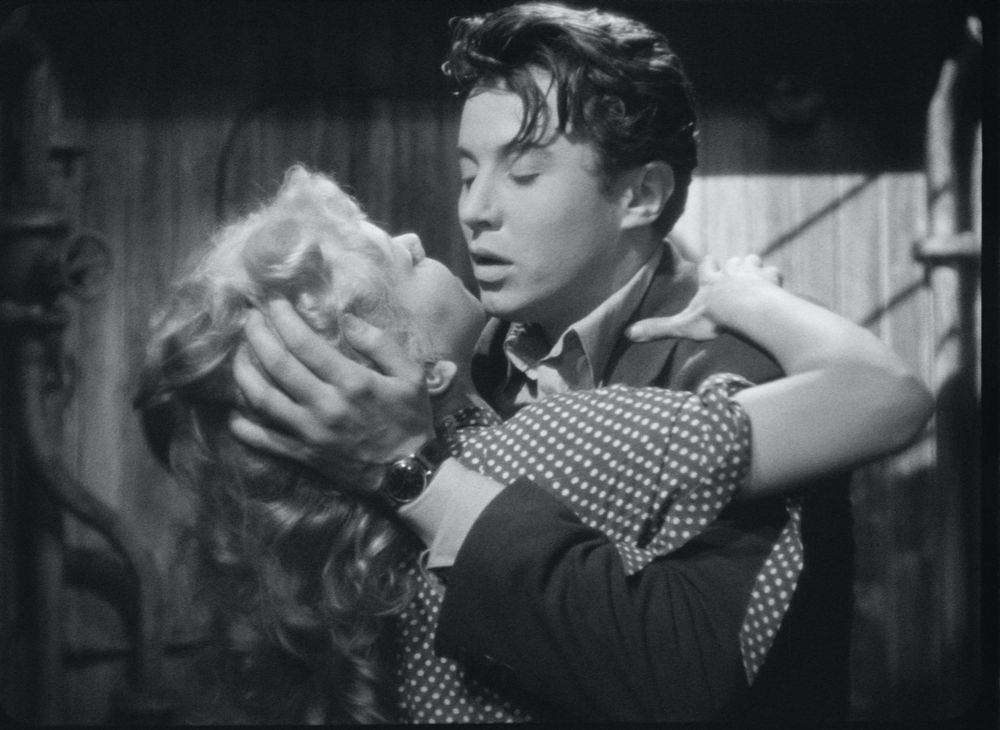« The Trouble with You | Main | The Rare Breed »
February 25, 2020
Manon

Henri-Georges Clouzot - 1949
Arrow Academy BD Region A
Like the characters in his films, as well as in the life of Henri-Georges Clouzot, it would seem impossible not to make a deal with a devil. Working as a script writer in Germany in the 1930s, Clouzot was fired for being friendly with a couple of Jewish producers. He had seen enough in Germany to be concerned about Hitler and the institutionalized anti-Semitism taking place. Finally making his directorial debut in France during World War II, his first two films were produced by a German company. Even though the films were not propaganda, it was enough to mark Clouzot as a Nazi collaborator. I do not think that Manon can be entirely understood or appreciated without knowledge of Clouzot's own history.
The story is loosely adapted from the 18th Century novel by Prevost. The bulk of the narrative takes place during the final months of World War II through the first year or so after the liberation of Paris. Robert is a resistance fighter in a provincial French village charged with holding Manon prisoner. Manon is accused of being a collaborator due to her working in her mother's bar that had been popular with German soldiers. Manon convinces Robert of her innocence, and the two run off in the confusion of an air raid. Making their way to a now free Paris, their idealized love is challenged by Manon's desire for material comfort, Robert's disinheritance, and a volatile relationship best described as l'amour fou. The pair attempt to escape Paris by stowing away on a boat carrying Jewish refugees to Palestine. As might be expected from a film by Clouzot, nothing ends well.
While Clouzot has put something of himself in the predicament of Manon, someone who may have unfairly been tagged a guilty by association, there seems to be little critical analysis regarding the Clouzot's choice of having Manon and Robert specifically make their escape on a freighter with stateless Jews. While not clearly stated, the scenes on the ship taking place in Marseilles and the Palestinian coast indicated this is a human smuggling operation. The ship's captain is sympathetic stating that the refugees are not to blame for their situation. It is also worth pointing out that composer Paul Misraki incorporates the song "Hatikvah" (The Hope) into his score, the song that became the Israeli national anthem. Also noteworthy is that Clouzot cast the refugees with a Yiddish theater group who primarily speak Yiddish throughout the film. The final sequence with Robert and Manon with the refugees in Palestine is in need of deeper exploration both regarding Clouzot's life, as well as its political context, past and present.
There are several good visual moments. A brief montage of three statues of saints in a bomb out church bear witness to Manon and Robert's declaration of love. Manon regards her reflection in a small pool of water. There are overhead traveling shots following Manon in the overcrowded train going to Marseilles, Manon facing the camera as she pushes her way forward. In one train car she is briefly shoved against a large man who complains that she is taking up too much room. There's also something to be said about the audacity with which Clouzot has his Robert (Michel Auclair) drag Manon (Cecile Aubry) through the desert like an oversized sack of potatoes.
The blu-ray comes with two supplements. A 1970 documentary, "Bibliotheque de poche: H. G. Clouzot" is primarily about Clouzot and literature. There is also an overview on the making of Manon by British film critic Geoff Andrews. While Andrews' discussion is primarily about Clouzot's early films as a director, he stresses the point that Clouzot has been somewhat inaccurately described by some as genre filmmaker, primarily based on his two international and critical successes, The Wages of Fear and Les Diaboliques.
Posted by Peter Nellhaus at February 25, 2020 07:08 AM
